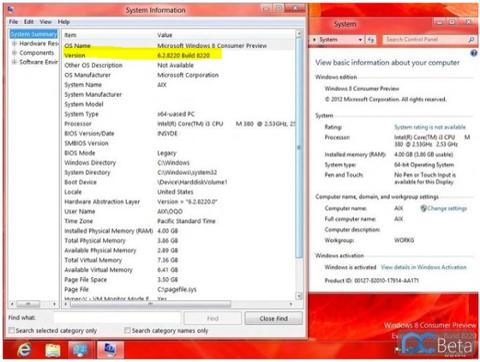int (*fPtr)(int,int)=0;The variable declaration fPtr holds a pointer to a function that returns an int and takes in two ints as parameters. It might be used with a function like this one.
int add(int a,int b) {Now we just have to assign the address of this function to fPtr using the C & operator, which returns the address of the function.return a + b;
}
fPtr = &add;When we want to call the function, we do the following:
int value=0; if (fPtr != 0){This outputs 9. It's very good practice to check that a pointer is not zero before you call it. You cannot assume that the operating system will set the variable to 0. You must do this yourself, as I did above.value = (*fPtr)(4,5);
} printf("value=%i",value);
What Use Are Function Pointers?
To write anything non trivial in C, you have to use them. With a set of function pointers you can emulate interfaces (as used in more modern languages). To 'implement' an interface, you have to provide a function body for each function defined in the interface and then assign them. The problem with C and pointers is that it takes a lot of work to avoid bugs. C++ is a superset of C, so has function pointers but also method function pointers. These let you call a method on an instance of an object.In C#
This is where it gets more interesting. C's main problem with pointers is type safety. C++ improves on it but there's still a chance that you can trick the compiler and end up with nasty crashing bugs. In C#, unmanaged code pointers don't exist and it's very hard to trick the compiler. C# offers delegates, anonymous methods and Lambda expressions, all of which are in a sense analagous to function pointers. What are the differences?Upload Your ResumeEmployers want candidates like you. Upload your resume. Show them you're awesome.
public Form1() {After that add this code:InitializeComponent();
}
public delegate int MyBinaryFunction(int a,int b); // delegate method signature // delegate method public int AddAandB(int aVar, int bVar) {This starts by declaring a delegate type MyBinaryFunction, which takes two int parameters and returns an int. The method AddAandB exactly matches this type. When we declare an instance of MyBinaryFunction called addfunc in button3_click, we can assign AddAandB to it, and then call addfunc which calls AddandB. You might wonder why not call AddAandB directly, like this?return aVar + bVar;
} private void button1_Click(object sender, EventArgs e) {button2.Enabled = true;
button2.Click += delegate // this is an anonymous methood (no name)
{
MessageBox.Show(@"Button 2 Clicked");
button3.Enabled = true;
button3.Click += button3_Click;
};
} private void button3_Click(object sender, EventArgs e) {MyBinaryFunction addfunc = AddAandB;
int total = addfunc(5, 4);
MessageBox.Show(String.Format("Total={0}", total));
}
int total = AddAndB(5,4);Yes, that works too, but it doesn't have the flexibility of passing the function as a variable. It would need a code change and recompile to use another function, whereas as with a delegate it can be done just by passing in a different function. When button 1 is clicked it adds an anonymous method to the button 2 click handler. That's all the code following the delegate keyword inside the block. It's code that is called when button 2 is clicked. Clicking button 1 does not run this code. This can be a bit disconcerting the first few times; clicking button 2 runs code defined inside the button 1 click handler! Clicking button 2 adds the button 3 click handler. This hooks it to a named method button3_Click. Despite the different ways of setting up the click handler for buttons 2 and 3, the end result is the same: a block of code that is called when the button is clicked. I'll look at doing this with Lambda Expressions in a future article as it needs a whole article to itself.



